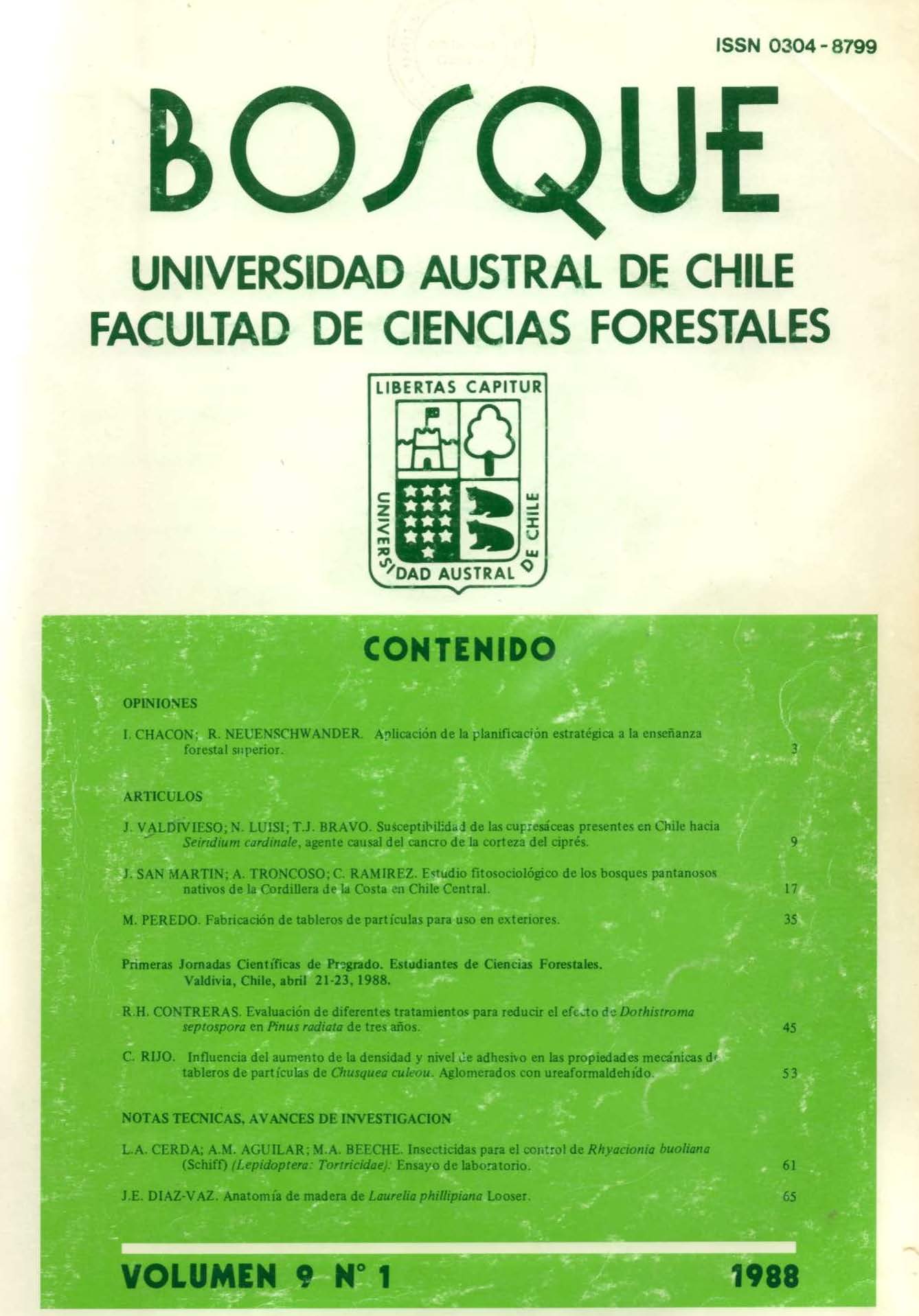Main Article Content
Jun 30, 1988
Abstract
Drimys winteri and Myrtaceae native swamp forests growing in twenty five ravines in the coastal mountain range (VII Region of Chile) were studied. The study area is located between río Mataquito (35°7' L.S. and 72°5' L.W.) and Tregualemu (35°59' L.S. and 72°41' L.W.).
101 samples were studied using the European phytosociological method. In the initial table, the number frequency, cover and the value of relative importance of the species were calculated. The degree of association of the species with the dominant tree, Drimys winteri, and the phytosociological similarity, among the samples were determined. Beside the geographical origin, the life forms of the species and their biological spectrum were studied. Also, the layers of the stand were analyzed. Lastly, plant associations were determined using the differential species of the vegetational table.
Of the 158 species appearing in the phytosociological table 72% are native. The forest are stratified. Their degradation is confirmed by the abundant herbs, climbers and, as well aloctonos and species of the nearest neighbor and secondary communities. The shrubs layer and herbaceous vegetation exceeded in number the species at the tree layer. It was confirmed that humid coastal gorges give refuge to austral floristic and endemic elements of the region, as well as to typical elements of the mesomorphic Chilean zone. Six forest syntaxa are phytosociologically described: Myrceugenietum exsuccae, Myrceugenietum exsuccae variante con Amomyrtus luma, Myrceugenietum exsuccae with Luma gay ana, Temo-Myrceugenietum exsuccae,, Scirpo-Nothofagetum antarcticae and Pitavio-Myrceugenietum excuccae. The two variants and the last association are new for the science.


